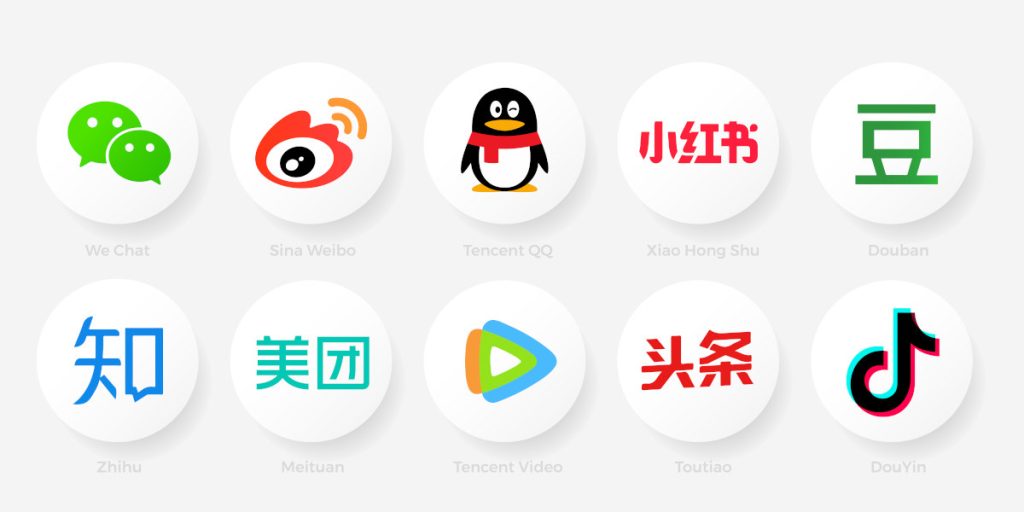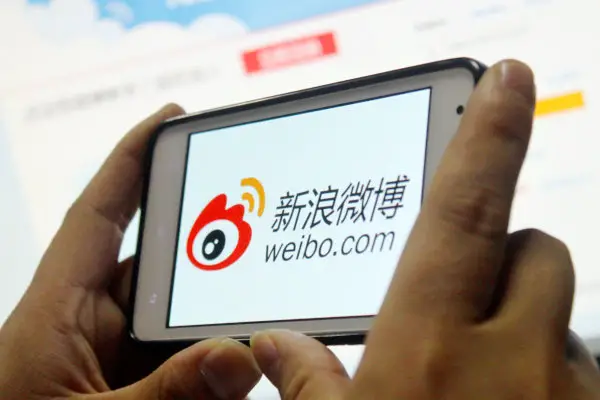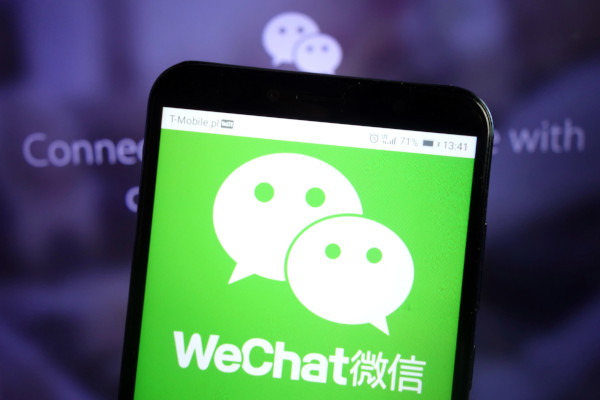
Have you ever wondered what the internet landscape looks like in China? The world of social media there is a vibrant and dynamic space, filled with unique platforms and trends. Whether you’re a business looking to expand your reach or a language learner eager to connect with native speakers, understanding Chinese social media is key.
This guide will equip you with the knowledge and tools you need to navigate this exciting online world. We’ll get deep into the nuances of using Chinese social media, covering everything from comprehending well-known sites like WeChat, Weibo, and Douyin to figuring out frequent expressions and hashtags that come up in online discussions.
Additionally, we will discuss the nuanced rules of online etiquette and how to ensure meaningful and respectful interactions in online spaces. Let’s dive in and unlock the secrets of successful participation in Chinese social media!
Popular Social Media Platforms in China
China’s social media landscape is a bustling ecosystem with a variety of platforms catering to different needs and demographics. Here, we’ll delve into three of the most widely used platforms: WeChat, Weibo, and Douyin.
WeChat: The All-in-One Super App
WeChat (微信 – Wēixìn) reigns supreme as the king of Chinese social media, boasting over 1.2 billion monthly active users. Think of it as an all-encompassing app – it functions as a messaging platform to connect with friends and family, but its functionalities extend far beyond that. WeChat allows you to:
- Make mobile payments for everything from groceries to movie tickets.
- Hail rides and order food delivery with a few taps.
- Access a vast library of mini-programs, essentially mini-apps within the WeChat ecosystem, for online shopping, booking appointments, and even playing games.
- Share updates on your “Moments” feed, similar to a Facebook timeline.

Weibo: China’s Twittersphere (or Xsphere)
If you’re looking for a platform for real-time conversations, news updates, and trending topics, Weibo (微博 – Wēibo) is your go-to. Often dubbed the “X of China,” (formerly Twitter) Weibo is a microblogging platform where users share short posts, images, and videos.
It’s a hub for public discourse, with celebrities, thought leaders, and everyday users alike using it to express opinions, share news, and engage in discussions. Weibo has become a go-to platform for staying informed and engaged in Chinese society.
Douyin: Short-Form Videos Taking Over
Douyin (抖音 – Dòuyīn), also known internationally as TikTok, has taken the world by storm. This short-form video platform allows users to create and share engaging video clips, often accompanied by music and special effects.
Its immersive interface and viral content have propelled it to the forefront of Chinese social media, especially among the younger demographic. Douyin isn’t just for entertainment; it’s also become a powerful tool for e-commerce, with influencers showcasing products and brands reaching new audiences.
Here’s a table listing popular social media platforms in China and their primary uses:
| Social Media Platform | Chinese Name | Primary Use |
| 微信 (Wēixìn) | Messaging, social networking, mobile payments, news, mini-programs | |
| 微博 (Wēibó) | Microblogging, sharing news, entertainment, celebrities, trends | |
| Douyin (TikTok) | 抖音 (Dǒuyīn) | Short-form video sharing, lip-syncing, dancing, comedy, talent showcases |
| Instant messaging, social networking, gaming, virtual communities | ||
| Bilibili | 哔哩哔哩 (Bìlībìlī) | Anime, gaming, comics (ACG) culture, entertainment, user-generated content |
| Zhihu | 知乎 (Zhīhū) | Question-and-answer platform, knowledge sharing, discussions, expertise |
| Xiaohongshu | 小红书 (Xiǎohóngshū) | Social commerce, product recommendations, lifestyle content, reviews |
| Kuaishou | 快手 (Kuàishǒu) | Short-form video sharing, live streaming, everyday moments, rural content |
| Tencent Video | 腾讯视频 (Téngxùn Shìpín) | Online video streaming, movies, TV shows, variety shows, original content |
| Meituan | 美团 (Měituán) | Food delivery, restaurant reviews, local services, group buying |
Additionally:
- 年轻人喜爱度 (Niánqīng rén xǐ’ài dù) – Popularity among young people (high, medium)
- 超级应用 (Chāojí yīngyòng) – Super App (does many things in one)
- 微博客 (Wēibó kē) – Microblogging
- 短视频 (Duǎn shìpín) – Short video
- 潮流种草 (Cháoliú zhòng cǎo) – Literally “planting grass of trends,” but means sharing trendy products
- 问答社区 (Wèn dá shèqū) – Q&A Community
- 弹幕视频 (Dànmù shìpín) – Bullet screen video (comments appear overlaid on the video)
The Role of Social Media in Chinese Daily Life
Chinese social media platforms like WeChat, Weibo, and Douyin are deeply woven into the fabric of daily life. They serve not only as communication tools but also as essential platforms for news consumption, entertainment, shopping, and even conducting business.
Understanding how these platforms function and how people use them is crucial for anyone wanting to connect with China’s vibrant online community. To truly engage with the online community, you’ll need to familiarize yourself with some popular phrases and hashtags.
Lingo Like a Local: Popular Phrases on Chinese Social Media
Chinese social media is brimming with fun and quirky expressions. Here are a few common ones you’ll encounter:
- 666 (liùliùliù): This string of numbers represents “smooth” or “excellent.”
- 吃瓜 (chī guā): Literally translates to “eating melon,” but it’s a lighthearted way of saying “gossiping” or “watching drama unfold online.”
- “摊手” (tān shǒu): Literally meaning “spread hands,” is used to express helplessness or resignation.
- 艾特 (ài tè): This is how you “tag” someone in a post, similar to “@” on other platforms.
Here’s a table of some common Chinese social media phrases you might see:
| Phrase | Pinyin | Meaning |
| 666 | liùliùliù | Represents “smooth” or “excellent.” |
| 摊手 | tān shǒu | Literally meaning “spread hands,” used to express helplessness or resignation. |
| 哈哈哈 | hāhāhā | Equivalent to “hahaha” in English, used to indicate laughter. |
| 加油 | jiāyóu | Literally meaning “add oil,” used to encourage someone, similar to “you can do it” in English. |
| 拜拜 | bāibāi | Informal way to say goodbye, similar to “bye bye” in English. |
| 好运 | hǎo yùn | Literally meaning “good luck,” used to wish someone luck. |
| 不明觉厉 | bù míng jué lì | Literally meaning “not sure but feels cool,” used to express admiration for something impressive. |
| 狗头 | gǒu tóu | Literally meaning “dog head,” used to represent a dog emoji in response to something cute or funny. |
| 小心点 | xiǎo xīn diǎn | Literally meaning “be careful,” used to caution someone. |
| 有毒 | yǒu dú | Literally meaning “poisonous,” used to describe something toxic or addictive in a humorous way. |
| 皮一下 | pí yīxià | Literally meaning “peel for a moment,” used to playfully tease or joke around. |
| 好耶 | hǎo yē | Expression of excitement or approval, similar to “yay” in English. |
| 哇塞 | wā sè | Wow! Expressing surprise. |
| 笑死我了 | xiào sǐ wǒ le | Hilarious, laughing so hard I’m dead |
| 真香 | zhēn xiang | True fragrance. Originally used sarcastically to admit something is actually good |
| 勇者的神 | yǒngyuǎn de shén | Eternal god. Expressing extreme admiration. |
| 在线求抱抱 | zài xiàn qiú bào bào | Looking for hugs (acting cute) |
| 累觉爱了 | lèi jué ài le | So tired, but I love it |
Understanding Commonly Used Hashtags
Hashtags serve as signposts on the vast landscape of social media, guiding users to topics of interest and facilitating discussions. In Chinese social media, hashtags often encapsulate trending topics, events, or memes, allowing users to participate in broader conversations.
For instance, #吃瓜群众 (chī guā qúnzhòng), or “melon-eating masses,” refers to bystanders who enjoy watching drama unfold without getting involved.
Tips for Using Social Media Lingo
Ready to incorporate this newfound knowledge into your interactions? Here are some tips:
- Start Simple: Don’t overwhelm yourself – begin by learning a few basic phrases and hashtags.
- Observe and Adapt: Pay attention to how native speakers use social media language and adapt it to your own conversations.
- Use it with Context: Remember, using slang appropriately requires understanding the context. Don’t overuse phrases if they don’t fit the situation.
Related reading: “How to set up and use WeChat and WeChat Pay as Tourists“

Etiquette for Online Interactions in Chinese
Navigating social media in China goes beyond just understanding the platforms and language—it also involves adhering to cultural norms and etiquette to ensure respectful and harmonious interactions.
Here are some key things to keep in mind for polite and productive online interactions:
Politeness Norms
Politeness is paramount in Chinese culture, and this extends to online interactions as well. When engaging with others on social media, it’s essential to maintain a courteous and respectful tone. Here are some tips:
- Formal vs. Informal: When addressing someone online, consider your relationship with them. Use formal greetings (您好 – Nín hǎo) for strangers or acquaintances, and switch to informal greetings (你好 – Nǐ hǎo) with close friends.
- Titles and Honorifics: In China, titles and honorifics are often used to show respect. For example, you might address someone as 王老师 (Wáng Lǎoshī) which translates to “Teacher Wang.”
Expressing Opinions Respectfully
In online discussions, it’s important to express opinions respectfully, even when disagreeing with others. Avoid confrontational language or personal attacks, and instead focus on presenting your viewpoint in a calm and rational manner. Use phrases like “我认为” (wǒ rènwéi) for “I think” and “请原谅我的不同意见” (qǐng yuánliàng wǒ de bùtóng yìjiàn) for “please forgive my differing opinion” to convey your perspective respectfully.
Handling Disagreements and Conflicts
Disagreements and conflicts are inevitable in online discussions, but it’s essential to handle them with cultural sensitivity and tact. Instead of escalating conflicts, strive to find common ground and seek constructive solutions. Here are some tips:
- “Saving Face”: The concept of “saving face” (面子 – miànzi) is important in Chinese culture. Avoid directly criticizing someone in a public forum.
- De-escalation is Key: If a discussion becomes heated, try to de-escalate the situation by using humor or proposing to take the conversation offline.
- When in Doubt, Opt Out: If you feel uncomfortable in a particular online discussion, it’s perfectly okay to disengage politely.
Remember, maintaining harmony is valued highly in Chinese culture, both online and offline.
Here’s a table outlining dos and don’ts for online interactions in Chinese
| Do’s | Don’ts |
| Use polite expressions and honorifics | Avoid confrontational language or personal attacks |
| Express opinions respectfully | Don’t belittle or dismiss others’ opinions |
| Acknowledge differing viewpoints | Avoid prolonging arguments unnecessarily |
| Apologize if necessary | Don’t escalate conflicts or create tension |
| Seek common ground and solutions | Avoid making assumptions or generalizations |

Staying Updated on Trends Through Social Media
Social media is not only a platform for connecting with friends and family but also a valuable resource for staying informed about the latest trends and developments. In China, leveraging social media to stay updated on trends is not just a pastime—it’s a way of life.
Here’s how you can leverage these platforms to stay ahead of the curve:
Following Influencers and Thought Leaders
One of the most effective ways to stay updated on trends in your Chinese language niche is by following influencers and thought leaders in your field. These individuals often share valuable insights, tips, and updates related to your interests, helping you stay ahead of the curve. Whether it’s fashion, technology, or language learning, following relevant influencers can provide valuable inspiration and knowledge.
Utilizing Social Media for Language Trends
Social media platforms are also invaluable tools for staying informed about language trends and developments. New slang terms and internet abbreviations pop up all the time.
By actively engaging with platforms like Weibo and Douyin, you’ll naturally encounter these emerging trends. Take note of what you see, and don’t hesitate to ask questions in online communities if something piques your curiosity.
Participating in Language Challenges and Events
Many Chinese social media platforms host language learning challenges and community events. These interactive activities are a fantastic way to stay engaged, practice your Mandarin in a fun and social setting, and discover new trends along the way.
It’s also a great opportunity to meet new people, expand your network, and share your passion for language and culture.
Here’s a table featuring influential figures and thought leaders in various Chinese language niches
| Niche | Influencer/Thought Leader | Area of Expertise | Social Media Handle |
| Language Learning | Yangyang Cheng | Mandarin Chinese | @yoyoChinese |
| Technology | Lei Jun | Tech Entrepreneurship | @leijun |
| Fashion | Han Huohuo | Fashion Design | @hanhuohuo |
| Travel | Fan Bingbing | Travel and Culture | @fanbingbing |
| Food | Li Ziqi | Culinary Arts | @李子柒 |
| Finance | Wang Sicong | Investment and Finance | @王思聪 |
| Fitness | Honey Chan | Fitness and Wellness | @honeyc.fit |
| Entertainment | Jackie Chan | Music and Acting | @JackieChan |
Related reading: Chinese as A Second Language – Is Learning Chinese Worth It?– Opens in new tab
Conclusion
The world of Chinese social media might seem vast at first glance, but with the knowledge you’ve gained through this guide, you’re well on your way to navigating it with confidence. From understanding key platforms like WeChat, Weibo, and Douyin to mastering social media lingo and navigating online etiquette, you’ve equipped yourself with the tools to connect with a vibrant online community.
Remember, the key is to embrace the journey, have fun exploring trends, and participate actively. Don’t be afraid to make mistakes – that’s part of the learning process!
As you delve deeper into Chinese social media, you’ll discover a treasure trove of information, entertainment, and opportunities to connect with native speakers. This newfound knowledge will not only enhance your understanding of Chinese culture but also open doors to exciting possibilities. So, unleash your inner explorer, embrace the unique language of Chinese social media, and get ready to unlock a whole new world of connections!
Stay in Touch
 Join our newsletter by using the forms on this website or click here!
Join our newsletter by using the forms on this website or click here! Follow us on Google News
Follow us on Google News Follow us on Facebook
Follow us on Facebook
FFeature Image from Depositphotos





